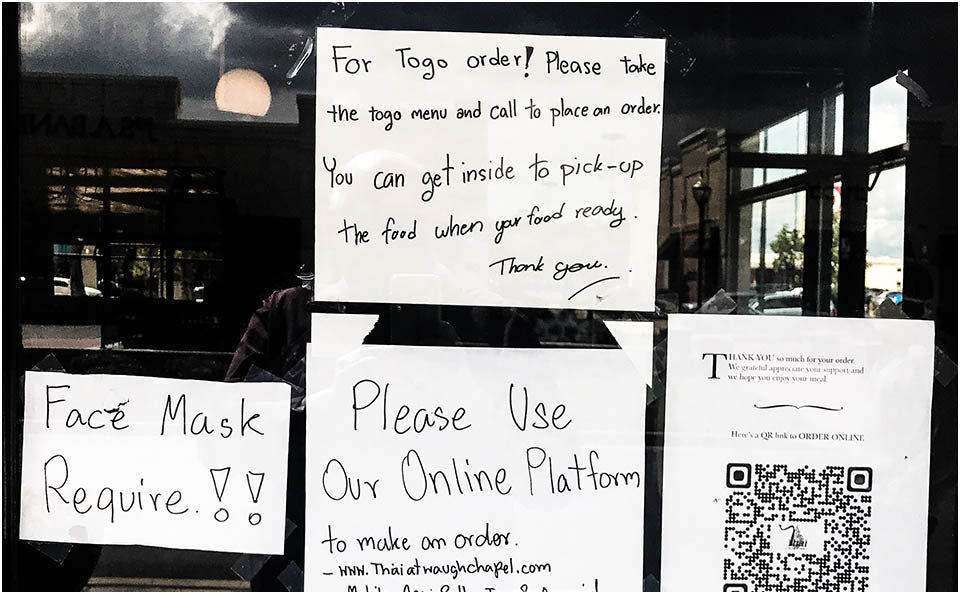How the Post-pandemic Coffee Shop will be Different
We are creatures of habit. COVID has relegated us to our basements and living rooms interrupting our usual consumer routines and our entire economy. We are seeing successful restaurants that have been established for 40 years closing their doors because customers have just stopped showing up. This is why governments are up in arms trying to get consumers back into their old habits.
This is especially true for coffee shops because they require higher frequency of visits, sometimes 20 times a month versus a hair salon at once every 6 weeks.
Convenience coffee no more. Destination Coffee will rule your world!
Coffee shops need to stop being passive and start being active in convincing customers that their business is worth visiting. Rather than relying on the convenience of their location, business owners will now have to give customers COMPELLING reasons to come to their cafe.
Food Service and Coffee Shops alike will have to transition into being a destination shop, meaning shop owners must entice customers to emerge from the safety of their COVID cocoons and make that special trip.
The first step to welcoming back business is to train staff so customers are reassured food handling and purchasing will be safe. This is enhanced with physical changes like barriers, face shields, masks, one way directional customer paths, hygiene and the packaging of foods.
Additionally, independent coffee shops need to offer an exceptional product and a safe experience to encourage customers to come back. The quality of the experience will need to be exceptional — and therefore worth it.
Well-brewed coffee by trained staff should be a good enough incentive, but many consumers have settled for making coffee at home. The key word is “settled,” as it is almost impossible to create artisan third wave quality coffee shop espresso drinks like lattes, espressos, mochas and cappuccinos from home without investing thousands of dollars in equipment — not to mention being trained to use that equipment. This is beyond the reach and desire of the average consumer.
Businesses will need to stand out. If your business is offering a watered down version of your preferred coffee shop or even worse, serving essentially the same quality of lattes and pastries that you will typically find in chain coffee shops, then a visit to your shop will not be worth the risk of a special trip.
Arguably, this advice can be applied to all small businesses more broadly. In other words even gas stations and clothing stores must make similar changes to ensure long-term survival.
Ensuring Artisan quality
Many coffee shops have gotten away with just having the words cappuccino and latte on their menus with poor execution because the corporate chain coffee shops have trained consumers through marketing and advertising to accept mediocrity while paying a luxury price. The convenience of locations is the enabler, but so is a customer base that is willing to tolerate mediocre drinks.
Imagine if you opened a fine dining restaurant, spent hundreds of thousands of dollars on the best, trendiest professional kitchen equipment to attract guests. You serve beautifully plated food that looks spectacular, but upon further inspection, you realize that the grand boeuf salade is really a deconstructed Big Mac. Foodies and consumers would normally see through this charade in a restaurant — plus the sesame seed bun would be a big tip off.
However in the coffee world, we are sad to report that many people are unknowingly paying top dollar for the coffee equivalent of the Big Mac.
Now with the COVID-19 impact on business, everything has to become a destination. If you are serving the same quality as a chain coffee shop, most consumers will choose to spend their money at the chain that might have a convenient drive-through and better customer service.
Progressive third wave coffee shop owners should be looking to up their coffee game. They will need to increase the quality of their drinks and focus on staff training to maintain a high quality standard.
Home Espresso Machines, Online Sales, Whole Bean Coffee: Ensuring versatility is your key!
As much as maintaining a high quality product is important, so is the versatility of that product and the different ways that business owners can secure a transaction.
During the pandemic, several independent coffee shops have seen an increase in bagged coffee sales, whole bean and ground for consumers to grind and brew at home. Most consumers are purchasing bagged coffee because they still need their caffeine fix. They are just changing the delivery method.
While some people are able to afford espresso machines and grinders to replicate coffee shop quality, these types of consumers are the minority. Most are shifting away from espresso based drinks like lattes and cappuccinos and are making brewed or drip coffee at home. While this is limiting the amount of times a customer may visit a coffee shop and can cause a decline in revenue, the whole bean and ground coffee sales are still important to ensure consumers are interacting with your brand.
Online sales, delivery and takeout options will also be essential for customers who may be uneasy coming into a coffee shop. While these avenues of securing a transaction may be new for some coffee shop owners, it’s important to keep your offerings versatile to suit varying comfort levels.
So what is the independent coffee shop to do? Use this COVID business checklist for ensuring your bottom line:
- Improve your quality. Coffee shops should take this time to improve the quality of their most important item — coffee! This will separate them from the pack and give greater odds on being selected as the caffeine delivery method of choice.
- Increase your online presence and allow customers to buy coffee beans online. This can be done through e-commerce services like the Canadian company Shopify. And, adjust your pricing for free shipping to make sense. Many reports indicate that up to 55% of consumers abandon the checkout if they have to pay for shipping.
- Create a pick-up window for online purchases or provide a delivery service using staff. Third party delivery apps have fees that have proven to be an expensive option. Doing this service in house may be more viable. Ease of ordering, uncomplicated pickups and service speed are essential for this to work.
- Offer baked goods. Shops with qualified staff to produce quality baked goods are seeing upticks in sales. Daily fresh artisan baked goods are a good additional incentive for customers to line up. If you don't currently offer quality bakery, a more practical option may be for a coffee shop to partner up with an existing bakery. Either way, the idea is to create more of a one stop shopping experience. You have to give your potential customer more reasons to visit you. If you are successful at selling more varied items then you also help your customer reduce exposures and help them to reduce their risks by not having them visit multiple locations to get all of their needs met.
- Consider selling more coffee brewing equipment. But don't do it in your typical coffee shop casual manner. It needs to be an actual retail experience similar to a kitchen store. For example, you could sell equipment for brewing at home on the tables that are left empty because you are following physical distancing rules for your business. Why not utilize this space created by COVID rules to sell goods and merchandise to your customers?
- Train your staff and create an internal standard of performance and quality. Don’t rely on hiring staff with trained skills. In house training is a must. Why pretend to be good when you can actually just be good?
- Implement safety measures. Install barriers, conform to provincial and local regulatory health bylaws. Ensure that staff is displaying a standard of safe behaviour that can be seen by guests and enforce social distancing if your shop is open to the public.



